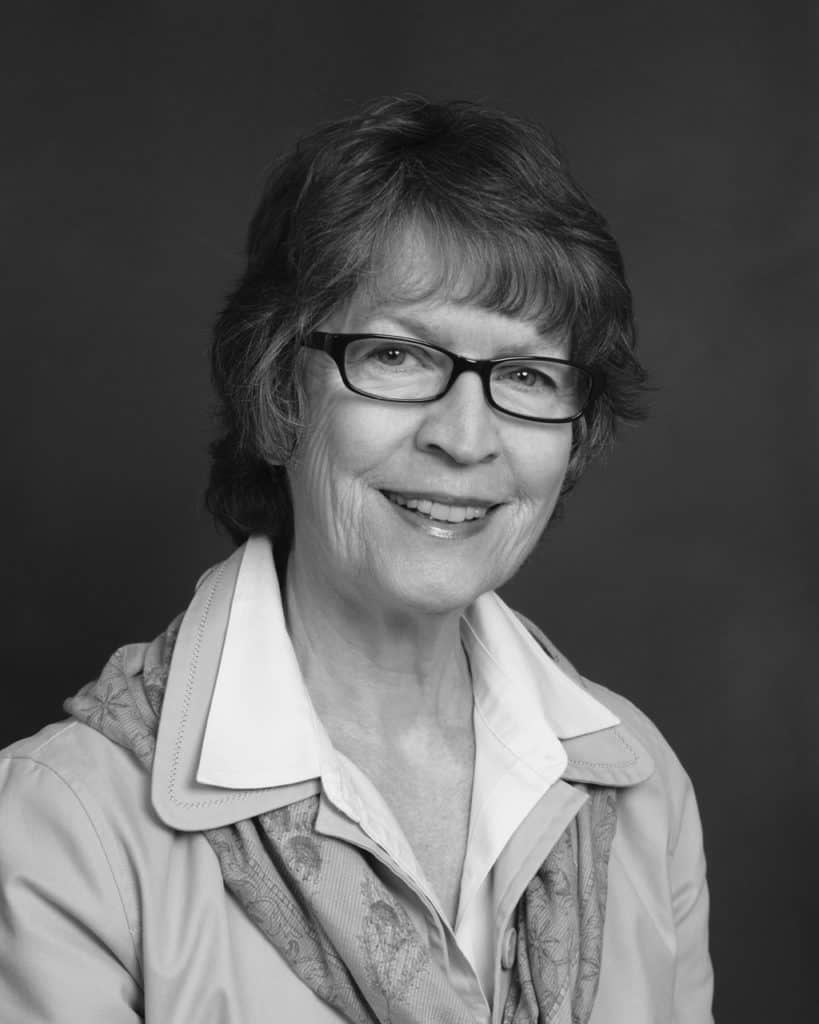What I Promised to Do
– Nonfiction by Sandy Fry –

“You have to have your key,” the lady at the bank tells me.
“Key?”
I’m trying to get into our new safe deposit box, but I haven’t brought the key with me. “Can’t you open it with yours?” I ask. She gives me a quizzical look. It’s the first safe deposit box I’ve ever had, and I don’t know it takes both the bank’s key and mine, working together, to open it. Bob must have told me that when he got the box, but I’ve forgotten, or I didn’t want to listen.
He gave me the key a few weeks ago and I put it away in my file cabinet. Then today he gave me some papers to bring to the bank box. That practice run is the one I just flubbed. I realize now that he set it up like that so I won’t forget again. He does that with other things too.
“Read the directions,” he says, standing over me while I load his lawn spreader with fertilizer and fiddle it to the right setting. He’s wearing his blue “garden” work shirt, waiting in the shade at the corner of the house, watching me wheel the spreader back and forth on the little square of grass in our back yard. “Why should I fertilize the grass?” I holler, “I don’t even like the grass.”
“You need to learn to do this,” he tells me, more softly this time, and I strain to hear. “I won’t always be here.”
That’s the problem: whenever he says, “I won’t always be here,” my brain immediately shuts down. No matter what it is – where he keeps an envelope of emergency cash in his car, a checkbook for a new joint account he’s set up – I don’t want to remember because I don’t want to think about a time he won’t be here. Bob is my life partner of over 20 years, and a lung cancer survivor for more than a decade.
I think it’s bad luck to talk about mortality, that it will jinx us to even acknowledge the possibility of his cancer returning. I want to stay positive, so I make sure I show him how to do things too: re-grout the tile, turn the compost, decode my password list. If we both do these things, it’s just sharing knowledge, a normal action that doesn’t tempt fate.
Bob made a will when he had his first lung cancer surgery. “I’m making you my executor,” he said. When he updated it for his second surgery, I made one too – trying to fool the bad luck again. We agreed to be each other’s executors, and we gave each other durable power of attorney for health care. We read each other’s living wills. Given no hope of recovery, we both wanted to be removed from life support.
“I don’t want to be a vegetable,” Bob said. “I don’t want you to have to take care of me.”
With his surgeries plus continuing follow up treatments, I knew the need for a living will was serious, but it still seems remote to me, and unrelated. Cancer is what I see as the big threat, the one I face sideways.
Since his second surgery Bob is now fitter than he’s ever been, his new healthy diet and an hour of walking every day have put a spring in his step he hasn’t had for years. “I’m so proud of you,” I tell him. “You’re taking good care of your health.”
“I don’t want to leave you,” he says.
Bob’s doctor is in New York City, where he had his surgery, and in the years since, we make regular visits for treatments and bronchoscopy check-ups at the hospital there. Each time we go he signs a new form naming me his health care proxy. He gives me his copy to keep until he’s out from under anesthesia. I take it each time, fold it, and slip it into the pocket of the shoulder bag of supplies he packs to take with us to the hospital. I sit in the waiting room, reading, with the bag at my feet so I don’t have to see it. Once, when the nurse calls me, it trips me when I stand to go.
I don’t have the bag with me the day the doctor tells me Bob likely had irreparable brain damage. The week before, he’d gone in for a bronchoscopy, with a procedure to laser scar tissue from his airway. After an incident of excessive bleeding, he’d been put in an induced coma to allow the area to heal.
Now it’s the day the doctor plans to wake him, and I wait in the hospital cafeteria, ready for a message saying Bob is conscious and I can come see him. But instead there’s a hurried call, “Sandy, come to my office.”
I wait another hour to see the doctor. Then he tells me. Before Bob was conscious but when the drug to keep him immobile was beginning to wear off, he coughed against the ventilator tube. This must have opened the torn artery they were trying to heal. His lungs and bronchus filled with blood. He was in CPR for twenty minutes, and much of that time he was without oxygen.
They had to immobilize him again. Now they plan to keep him asleep while they work to find the source of the bleeding. It may be another week or so before they can try waking him. Then we’ll see the extent of the damage.
The hospital bag Bob packed, the one with the health care proxy, is in my hotel room. It’s hanging on the back of the chair where I sit down to phone family and friends, what I think of as “calling all prayers.” My friend Kathy is among the first I call. “I’ll come and stay with you,” she says.
“Kathy, you mustn’t do that. It’s far too much,” I say. It’s Thanksgiving week. She’d be leaving her family.
Kathy has airline retiree passes. “Mine is the ministry of availability,” she tells me, “I’ll be there in the morning.” She stays all week. Having Kathy with me keeps me going during the black holes of time between visiting hours. She takes me to light candles in St. Patrick’s Cathedral. On Thanksgiving Day I take her to one of Bob’s favorite restaurants, where we’d gone for dinner just over a week before.
My brother Carrol comes to stay with me the day Kathy leaves. He’s more realistic about Bob’s condition than I am. Bob has problems in vital organs that were without oxygen for the duration of CPR. He has pneumonia. They’re treating it, but there’s still a rattle in his breathing. He has kidney damage, and is swollen with extra fluid. He has blood clots, so they install a vena cava filter to keep them from traveling to his lungs. But even with the serious shape he’s in, I’m still waiting for him to wake up, be conscious, “be Bob.”
Bob’s friend Dave and I agree that if anybody has the extra brain power to survive the long lack of oxygen, surely it’s Bob. “He’s so smart, he has brain cells to spare,” Dave says.
“You’ll wake up,” I tell Bob. I talk to him every day even though they still keep him unconscious. “I miss you so much,” I say, over and over, “please come back.” I tell him the news, and the goofy daily things I’ve written down, all the notes I’m keeping during the time he’s asleep so I’ll remember to tell him when he wakes up.
“Kathy came to stay with us,” I say, “She’s moved to Michigan with her new husband. They’re both in their seventies now,” I add, for inspiration. I lean close. “She shops at Victoria’s Secret,” I whisper.
Then the doctors take him off the medication that keeps him asleep and immobilized. He opens his eyes, but he stares, unseeing. When we speak to him, he doesn’t acknowledge us. Tests show loss of brain function. I don’t realize this is my worst nightmare until it happens.
I need to take care of some things at home, so I fly back to Atlanta for a couple of days while Carrol stays with Bob. I get Bob’s living will and power of attorney from the safe deposit box. This time I know to take the key.
What if Bob’s “there” but he just can’t talk to us, my brother and I worry. I bring a radio from home to play for him, and search for classical music or an NPR station. We keep talking to him. “Carrol has a back problem,” I tell Bob. “I know it’s painful but it’s funny too. Whenever it seizes up, he stops and squats down, then he bounces a few times and he can walk again.” I tell him how my brother, a retired English professor wearing his professorial tweed jacket and nice trench coat, will make a sudden unapologetic squat-and-bounce on a crowded New York street, or among the solemn riders in the hospital elevator. I think if anything can bring Bob back it will be humor. We wait several days, in case a trace of medication still in his system skews the tests, but his condition is unchanged, and new test results are the same. Bob can’t come back.
The doctors call me in to discuss the living will. My brother comes with me, and we phone Bob’s brother so he can talk with them too. Everyone agrees that the instructions are clear. Still, I’m the one named as health care proxy. I’m the one who has to sign to let him go. “Let’s wait another week and do the test again,” I say. But next week comes, and the answer is the same, “results consistent with a vegetative state.” So I do it. I sign, and I let him go.
I stay with him after they take him off the ventilator. It’s evening by now, the longest day of my life. I’m exhausted. I sit next to his bed, take his hand in mine, lay my head on the bed beside him and fall asleep.
“Sandy! Are you OK?” It’s the doctor’s voice, sounding alarmed.
I open my eyes, blink, sit up. “Yes,” I tell him, “Bob is sleeping, so I was too.” The doctors think he won’t be able to breathe on his own, but he lingers. Christmas is coming. I send my brother home, and wait alone.
Bob’s beard, once so luxuriant, is now short and uneven, hacked away when it interfered with holding the tubes he’s been connected to. His hair and beard are sticky from the powdered cleaner the hospital attendants use. I want to wash them, but can’t figure out how. I ask one of the nurses, and she holds a basin of water to help me. It’s a relief to see him clean again. Washing him makes me feel oddly Victorian. The nurse finds me some scissors and I even up his beard. Then, as the Victorians would do, I clip a lock of his hair and slip it into a fold of paper in my pocket.
I stay at the hospital every day until around 8 P.M. Every time I leave his room, I worry I’ll never see him again. It’s already past the last visiting time, so I go back to the hotel and sit looking at television without hearing or seeing it.
My cell phone rings, and it sets off all my inner alarm bells. I panic and throw it off the table trying to pick it up. It’s a nurse at the hospital calling to tell me, “Mr. Oblander passed away at 9:35.” I feel a tearing away inside, like a thread pulling tighter and tighter until it breaks.
“I’ll be right there,” I say. I don’t want him to be alone. I run to get my shoes. I howl aloud, “Oh Bob, I’m so sorry, sorry I signed that paper. But I did what you told me to do!”
When I get to the hospital he’s alone in the room. I take his hand. “Dear heart, you’re still warm,” I say. A silent wail wells up from the deepest place inside me, dark and primitive, as if I’ve lost the use of words. I lay my head on his chest and sob. His chest is strangely hard, with none of the rising comfort of the living.
I stay a while to be with him, I don’t know how long. I want his spirit somehow to know I’m there for him. A nurse looks in, speaks quietly, then goes out. Finally I leave, and remember nothing about the rest of the night.
I call Bob’s brother, his friend Dave, my brother, and Kathy. I know I planned what to do, and talked it over with our brothers the week before. I wrote it down like a script, knowing that when the time came, I’d be too numb with shock to think or make decisions. The only thing I’ve forgotten to plan for is clothing. Crazy, to worry what to wear to be cremated, but I want to honor Bob in every way possible.
I get his navy blazer and the dress shoes that he wore on the flight from Atlanta. Weeks earlier, I’d looked through his suitcase for his keys, but this time my fingers touch unopened packages. He brought a new set of shirt, socks and underclothes, still in their wrapping. Why would he pack new clothes? It makes me wonder if he had a premonition.
At the funeral home, they dress him in the clothes I bring and take me in to see him. He looks smaller than I remember. Where is he now, the real Bob, the one who left this body? Words come to me – impenetrable, secret, unknown and unknowable. I touch his face, cool now, and trace the line of his brow. I’m glad we washed his beard, and that it’s still clean.
Back out in the cold winter air, I walk into Central Park, feeling empty, and light enough to float. I see a splash of blue on the pavement ahead. When I reach it I find a ring of blue flowers arrayed on a circular pattern of tile. In the center is one word: Imagine. It’s the John Lennon memorial, covered in a fresh tribute. Bob knew the park well. He brought me here when we came for his last check up, just a few months ago. I close my eyes, take a breath, and ask time to circle back, give us a “do-over.” But when I open my eyes I’m still alone in the park.
I stay in New York a few more days, waiting to get the death certificate and paperwork from the funeral home. I don’t want to face going back to our house. Without Bob, I’m still floating.
I pack to come home, bringing all his things with me: his suitcase, his briefcase, and that shoulder bag with the paperwork still in it. The shoulder bag is on the floor beside my file cabinet now. Its strap still trips me up sometimes when I walk past.
The weeks in the hospital are burned in my memory. I worry whether I did the right thing in signing the paperwork to let him go, and that worry haunts me. Months pass, and the hospital shoulder bag is still sits by my file cabinet. I finally pick it up, open it, get out the documents – the living will, the power of attorney. I haven’t seen them since Bob’s death. I read them over again. “My Agent shall not have the power to take any action or make any decision which contravenes the provisions of the living will…” the power of attorney says.
I see clearly now what I didn’t see then. All this time I’ve been worrying that I made the wrong decision in signing to let him go, but the decision was not mine to make. It was Bob’s, and he’d had already made it. I did what I promised to do.
About the Author – Sandy Fry

Sandy Fry is a writer, photographer, traveler, and lifetime art student. Past publications include Minerva Rising, Number One, StoryNews, an essay in the ‘Your Turn’ column of the AARP Bulletin, and photographs in Minerva Rising, Unearthed, Oyster River Pages, and The Longleaf Pine. Her blog, HoarderComesClean.wordpress.com, tracks adventures in art, travel, and downsizing.
Did you like this story by Sandy Fry? Then you might also like:
Pieces of You
Desert Spirits
Bread Knife
Gelato and Frost
For David
Recovery
One Cut at a Time
Like reading print publications? Consider subscribing to the Dreamers Magazine!

Dreamers Writing Prompt Generator
Experience the power of simplicity with our unique writing prompt generator. Designed for writers who crave spontaneity and surprise, our tool delivers one meticulously crafted prompt at a time.

Top 25 Most Popular Manga Right Now
If you’re searching for the most popular Manga right now, this top 25 list is the ideal starting point, whether a beginner or enthusiast.